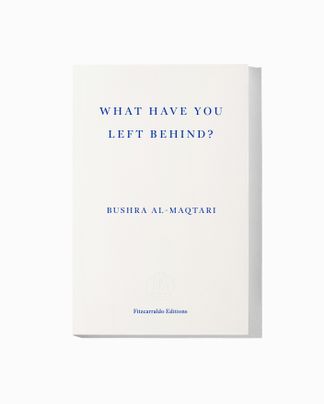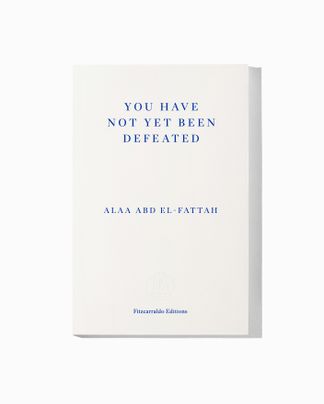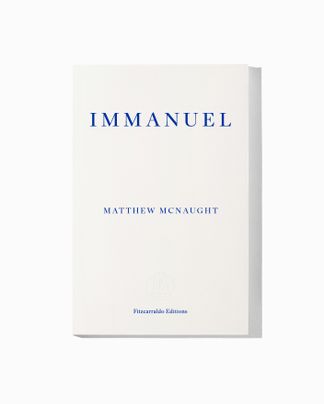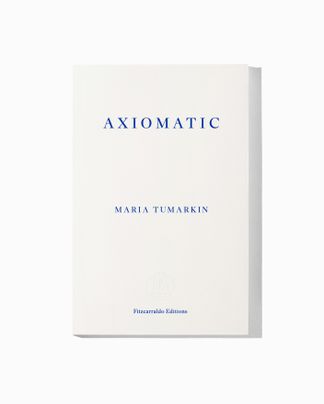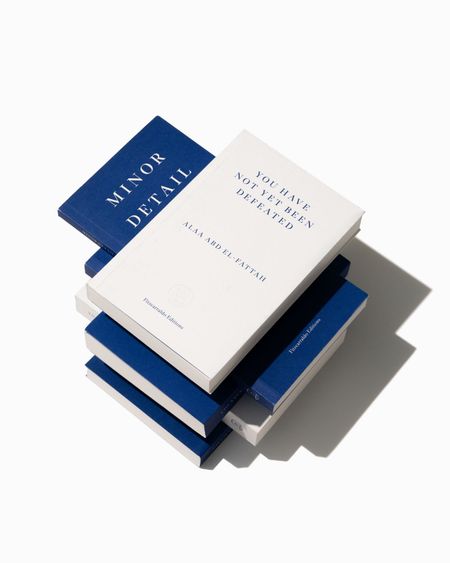In 2016, a young Afghan driver and translator named Omar makes the heart-wrenching decision to flee his war-torn country, saying goodbye to Laila, the love of his life, without knowing when they might be reunited again. He is one of the millions of refugees who leave their homes that year. Matthieu Aikins, a journalist living in Kabul, decides to follow his friend and goes underground on the refugee trail. Their year-long odyssey across land and sea from Afghanistan to Europe brings them face to face with the people at heart of the migration crisis: smugglers, cops, activists, and the men, women and children fleeing war in search of a better life. Harrowing yet hopeful, The Naked Don’t Fear the Water: An Underground Journey with Afghan Refugees is an exceptional debut that brings into sharp focus one of the most contentious issues of our times.
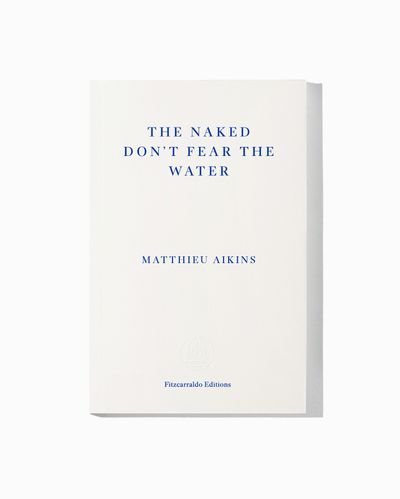
The Naked Don’t Fear The Water
Published 15 February 2022 | French paperback with flaps, 388 pages
Winner of the 2022 Osborn Elliott Prize for Excellence in Journalism on Asia
The Naked Don’t Fear The Water
I.
At first light, I leaned against the window and looked down at the mountains. We were flying into the rising sun, and its rays threw the badlands into relief: corrugated brown cut by green valleys, and speckled with hamlets still reached by donkey. We were near the intersection of Afghanistan, Iran, and Turkmenistan, but which country I saw below I couldn’t say. Frost had crystallized on my porthole, rosy with the dawn just like our contrails would be to the people below.
I settled back against the headrest. We were still a few hours out from Kabul, where my friend Omar was waiting for me. When I closed my eyes, I could see his face when he dropped me off that summer at the airport, suddenly pleading, his hand gripping mine: ‘Come back, brother. Don’t leave me. Everyone else is leaving.’
The plane was quiet. The few passengers I could see were slumped forward or sprawled out asleep across the rows. These empty places would be filled on the return to Istanbul, I knew, with Afghans fleeing the war. My own seat might be taken by someone who planned to cross the water in the little rubber boats that departed from Turkey to Europe. Thousands of refugees were landing each day now on the Greek islands, and many more were on the way. It was late October 2015, and something miraculous was happening that fall, a violation of a fundamental law: under the weight of the people, the border had opened.
For years, the pressure outside Europe had been building as war spread through the Middle East and made millions homeless. The boat people were mostly Syrian, Afghan, and Iraqi. Many were women and children, and, short of shooting them, there was no way to stop them. From Greece, they headed north through the Balkans, filling city squares and border crossings, a spectacle on the news, a crisis. To keep the European Union from tearing itself apart, Germany suspended its rules and let the migrants through; other countries followed suit, and now the five frontiers between Athens and Berlin were down. Screens around the world showed the masses walking through open borders, proof of the impossible, a clarion announcing universal freedom of movement—a dream for some, and a nightmare for others.
No one knew how long the miracle would last. Thousands of people were landing each day now in the little boats. A million would pass into Europe.
And Omar and I were going to cross with them.
We had made our decision back in August, when I’d returned home to Kabul after an assignment in Yemen. I’d known Omar since I’d started working in Afghanistan, and he’d always dreamed of living in the West, but his aspiration had grown urgent as the civil war intensified and his city was torn apart by bombings. American soldiers were on their way out of the country; I was trying to move on, too, burned out after seven years reporting here, but I couldn’t leave Omar behind. So when I’d flown back earlier that summer, my friend had been on my mind. I had no plan yet, but an idea was taking shape. Omar and I needed to talk.
WELCOME TO HAMID KARZAI INTERNATIONAL AIRPORT. At the immigration counter, I handed over my passport and placed my fingertips on the green glow of the scanner, then walked to the baggage carousel and got my suitcase, wheeled it to the X-ray machine. The cop at the monitor was looking for guns and bottles. Alcohol was illegal in the Islamic Republic of Afghanistan, except at the embassies and international agencies, but foreign visitors were allowed to bring in two precious bottles each. I hefted my suitcase onto the conveyor belt, along with the bag of scotch and gin from the duty-free in Istanbul, and walked to the other end, rehearsing my lines.
My ancestors came from Japan and Europe, but I look uncannily Afghan: almond eyes, black hair, wiry beard. So the border guards invariably assumed that I was a local with haram contraband, a lucrative catch, since the confiscated booze would likely end up on the black market. Over the years, my Persian got better, but that just made the conversations more awkward.
‘Brother, are you telling me you’re not Afghan?’
‘No, sir,’ I’d say, scrambling around the belt with my passport before the cop could snatch the bottles. ‘Look at my name, I’m not even Muslim—sorry.’
Outside the terminal, I inhaled the dry summer air. I hadn’t been sleeping much since Sanaa, but my tiredness left me as the scene came into focus: faraway snowcaps of the Hindu Kush, the slums on the hillside, the Humvee with its turret pointed at the gate. In the parking lot I spotted a gold Toyota Corolla and, listening to the radio with the window down and a cigarette lit, my friend Omar. He got out and walked forward: taller than me, broad-shouldered, with a fleshy grin and crow’s-feet. As we embraced, the heat made his stubble prick against my cheek; he smelled of cologne and smoke. Prying my suitcase from my hand, Omar hefted it into the trunk. We drove into the roundabout outside the airport, a gyre of taxis, armored SUVs, buses, the policemen shouting, the beggars tapping windows, the peddlers swinging racks of phone cards and dashboard ornaments. Omar nosed the Corolla forward, cursing softly, one hand on the wheel and the other clutching a Pine, from time to time leaving it between his lips to run his fingers through his dark mop of hair. It wasn’t until we got out onto the airport highway, with its long stretch of cavernous wedding halls, that we could relax and catch up.
(…)
‘This is a book of radical empathy, crossing many borders – not just borders that separate nations, but also borders of form, borders of meaning, and borders of possibility. It is powerful and humane and deserves to find a wide, wandering readership.’
— Mohsin Hamid, author of Exit West
‘The most affecting book I have read about the iniquity of the refugee crisis since Exit West. The reporting is totally immersive, without ever losing its clarity, and gives a heartbreaking insight into the lives of normal people taking terrible risks to save themselves.’
— Sam Knight, author of The Premonitions Bureau
‘A riveting and heartrending look at the hidden world of refugees that challenged everything I thought I knew about the consequences of war and globalization. It’s the most important work on the global refugee crisis to date, and a crucial document of these tumultuous times. It will go down as one of the great works of nonfiction literature of our generation.’
— Anand Gopal, author of No Good Men Among the Living
‘This is a gripping, devastating book, and it must have taken great courage and determination to write. The best way to honour this book would be for us all to read it and ask ourselves what we can do for the thousands of unknown and unrecognized people who are treading this terrifying path.’
— Hari Kunzru, author of Red Pill
‘Matthieu Aikins is that rarest of combinations – an intrepid journalist who writes beautifully. The Naked Don’t Fear the Water is a compellingly original piece of work, an unforgettable narrative about one of the great human epics of our day.’
— Jon Lee Anderson, author of The Fall of Baghdad
‘Highly readable, empathetic and revealing, Aikins’s book is brutally honest and often deeply moving – a work of great sympathy and understanding.’
— John Simpson, Observer
‘When he cups a child’s head while their boat flails through riotous waves, when he dances with new friends at an unlikely haven in Athens, when he shares a sandwich with a man who is more brother than friend, Aikins … experiences the kind of equality that politicians, advocates and religious leaders tout but rarely achieve…. This book is Aikins’s profound act of love — for Omar, for their travel companions and for the beleaguered people of Afghanistan, now irrevocably scattered around the world.’
— Jessica Goudou, New York Times
‘This is a story in which hapless migrants find themselves at the mercy of greedy people-smugglers at every checkpoint, with no recourse but to pay them off with their life’s savings. But it is the state that is the greater predator, pitting refugees against one another, deporting them at will and ultimately trapping vulnerable people in a Kafkaesque loop of survival and incarceration.’
— Abhrajyoti Chakraborty, The Guardian
‘The question of who has the right to travel across borders looms large in his courageous reporting. So do the dangers some people are obliged and willing to take along the smuggler’s route into Europe…. [A] devastatingly intimate insight into the refugee crisis.’
— Rory Sullivan, The Economist
‘[A] startling, humane account of the “refugee underground.”’
— New Yorker
‘For its dedication to documenting such desperate journeys, shining a light on conditions for migrants, The Naked Don’t Fear the Water is an incredible achievement.’
— Laura Waddell, The Scotsman
‘[A] gripping story of international adventure and romance. Stylistically, it sits somewhere between Jack Kerouac’s On the Road, Graham Greene’s The Quiet American and Daniel Trilling’s Lights in the Distance…. [A] nuanced and detailed account of the refugee crisis that reached its apotheosis during the Long Summer of Migration in 2015.’
— The Globe and Mail
‘[R]eading about the refugee trail at this depth – the perilous boat ride across the channel to the Greek islands, the squalid misery of the refugee camp on Lesbos – forges insight and empathy…. Because, finally, this is a story about a group of ordinary people trying to survive.’
— Rachel Andrews, Irish Times
‘Journalist Aikins debuts with a powerful account of the “long and dangerous journey” many Afghans take out of their war-torn country.… The result is a heart-wrenching portrait of resilience and ingenuity under the most trying of circumstances.’
— Publishers Weekly
‘The book shines a humane spotlight on many of the people the author met along the way as well as on the role chance played in their fates, with particularly moving chapters on life within the Greek refugee camp. The narrative is scrupulous and often suspenseful. Sharp insider insights into a global dilemma.’
— Kirkus
‘Aikins offers a kaleidoscopic view of fragmented families and dispossessed people trying and failing and scheming and planning and hoping and praying to complete the next leg of their journey…. Unique, gripping, and beautifully written.’
— Nick Turse, The Intercept
‘There is much to admire about this book, its first-hand perspective being the most obvious. When Aikins writes of the “sense of vertigo in handing yourself over to criminals” it’s because he himself has been in their clutches. This isn’t a reconstructed account, pasted together from secondhand sources; it is embedded journalism in the raw, a personal dispatch from behind the lines of Europe’s intractable migrant crisis.’
— Oliver Balch, Spectator
‘The Naked Don’t Fear the Water is a work of great empathy and humanity: a must-read for anyone looking to understand our increasingly fractured age.’
— Buzz Magazine
Matthieu Aikins has reported from Afghanistan and the Middle East since 2008. He is a contributing writer for the New York Times Magazine, a contributing editor at Rolling Stone, and has won numerous honors, including the George Polk and Livingston awards. He is a past fellow at Type Media Center, New America, the Council on Foreign Relations, and the American Academy in Berlin. Matthieu grew up in Nova Scotia, and has a master’s degree in Near Eastern Studies from New York University. The Naked Don’t Fear the Water is his first book.

